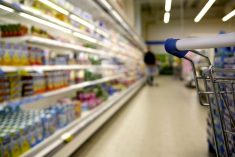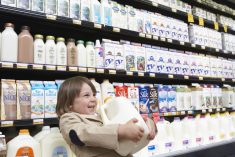Canada needs a simple, consistent and easy-to-use system to build on its green agriculture reputation, says a recent report from accounting firm Deloitte Canada.
They noted that an “overabundance” of sustainability claims and the growth of “greenwashing” makes a credible, consistent standard even more important to ensure consumer trust.
Deloitte worked with the Canadian Alliance for Net-Zero Agri-Food (CANZA), whose members include McCain, Loblaw Companies and RBC. In “Growing a Net Zero Food System: An open-source framework for climate-smart agri-food products in Canada,” the authors examined existing practices, trends in the food sector, and what will be needed to successfully meet Canada’s ‘net zero’ carbon goals.
Read Also

Federal budget shows remaining disconnect between agriculture, policymakers, panelists say
Canada’s agriculture sector is still disconnected from policymakers in some ways, say panelists at a CAPI webinar
A more robust and uniform system for the measurement, reporting and verification (MRV) of greenhouse gas reductions and removals is at the heart of the challenge, they noted. They found that many Canadian companies “… are already advancing innovative solutions,” but also found many of these organizations are also struggling with exactly how to account for climate smart practices.
Many of the challenges relate to data, including trust, data ownership, access to farm-level data, traceability across the value chain, the cost of implementation, and ensuring that meeting data needs won’t impose undue burdens on farmers, the report found.
In the report, Deloitte recommends an open-source framework that could be used by any stakeholder in the agri-food sector, with defined measurement methodology.
“It can be used by industry associations, financial institutions, or industry players to support GHG accounting and measurement in existing product labels and certification schemes,” the report states.















